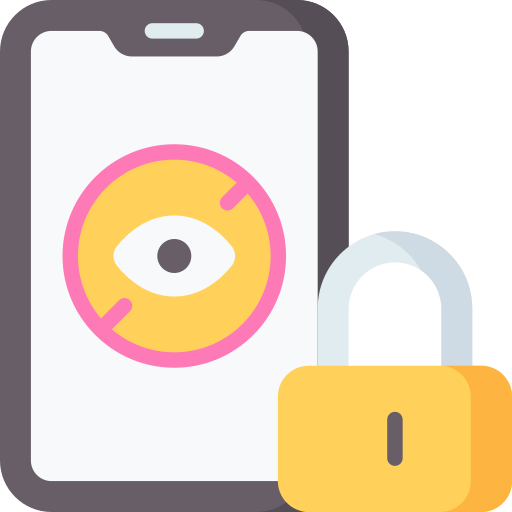Understanding the Importance of Parental Control
In today’s digital age, parental control has become increasingly important. With children having access to various devices and the internet at a young age, it is crucial for parents to actively monitor and regulate their online activities. Parental control not only ensures the safety and well-being of children but also helps in fostering responsible digital citizenship.
One of the key reasons why parental control is essential is the potential risks associated with unmonitored online behavior. With cyberbullying, inappropriate content, and online predators becoming prevalent, parents must take proactive measures to protect their children from such threats. By implementing parental control software and setting age-appropriate rules and boundaries, parents can effectively mitigate these risks and provide a safer online environment for their children.
The Risks of Unmonitored Online Behavior
With the widespread use of technology and the internet, unmonitored online behavior can expose children to a range of risks. One of the most prevalent dangers is online predators who seek to exploit unsuspecting children for their own nefarious intentions. These predators may manipulate children into sharing personal information, engaging in inappropriate conversations, or even meeting up offline. Without proper monitoring, children may fall victim to scams, cyberbullying, or exposure to explicit and inappropriate content that can have long-term negative effects on their mental and emotional well-being. It is crucial for parents to understand and address these risks to ensure the safety and well-being of their children in the digital realm.
Setting Age-Appropriate Rules and Boundaries
When it comes to setting age-appropriate rules and boundaries for your children’s online activities, it is essential to consider their developmental stage and maturity level. Younger children, for example, may need more restrictions and guidance to ensure their online safety. This can involve limiting their access to certain websites or apps, monitoring their online interactions, and using parental control software to filter inappropriate content.
With older children and teenagers, it is important to strike a balance between granting them some autonomy and still ensuring their safety. This might involve having an open conversation about online risks and responsibilities, setting limits on screen time and device usage, and establishing clear expectations for their online behavior. By adapting the rules and boundaries to fit your child’s age and understanding, you can help them navigate the online world responsibly and safely.
Choosing the Right Parental Control Software
With the increasing prevalence of digital devices in the lives of children, it has become essential for parents to take proactive measures to ensure their safety online. One effective way to do this is by choosing the right parental control software. These software solutions offer a wide range of features and functionalities that can assist parents in monitoring and controlling their children’s online activities.
When selecting parental control software, it is important to consider the specific needs and requirements of your family. Some software may prioritize content filtering and blocking, while others offer more advanced features such as screen time limits and remote monitoring. Assessing your family’s needs and understanding the capabilities of different software options will help you make an informed decision. Additionally, it is crucial to choose software that is compatible with the devices and platforms your child uses, ensuring seamless integration and effective monitoring.
Educating Children about Online Safety
One of the most important aspects of ensuring online safety for children is education. It is essential that parents and caregivers take the time to educate their children about the potential risks and dangers of the internet, as well as how to navigate it safely. This can be done through open and honest conversations about the various threats that exist online, such as cyberbullying, inappropriate content, and online predators.
Parents should also teach children about the importance of privacy and the need to protect personal information. They should emphasize the importance of never sharing personal details, such as full name, address, or phone number, with strangers online. Additionally, children should be educated on how to recognize and handle suspicious or malicious online activities, such as phishing attempts or unsolicited contact from strangers. By equipping children with the knowledge and awareness they need to stay safe online, parents can help them navigate the digital world with confidence and caution.
Monitoring Online Activities without Invading Privacy
One of the challenges parents face when it comes to monitoring their children’s online activities is striking a balance between ensuring their safety and respecting their privacy. While it is important to protect children from potential online dangers, invading their privacy can lead to a breakdown in trust and hinder open communication. So how can parents monitor their children’s online activities without crossing the line?
One approach is to have open and honest conversations with your children about the importance of online safety. Educate them about the potential risks and teach them how to navigate the online world responsibly. By fostering an environment of trust and understanding, children are more likely to be open about their online experiences and seek guidance when needed. Additionally, setting clear expectations and establishing age-appropriate rules and boundaries can help parents monitor their children’s online activities while respecting their privacy. By outlining guidelines for internet usage, parents can monitor their children’s online behavior without resorting to invasive measures.
Blocking Inappropriate Content and Websites
The internet is a vast and diverse space, filled with an endless supply of information and content. While this can be beneficial for learning and entertainment, it also opens the door to potential dangers, especially for children. Blocking inappropriate content and websites is a crucial step in ensuring their online safety.
By implementing parental control software or utilizing built-in features on internet browsers, parents can filter out explicit or inappropriate material that may be harmful to their children. These tools allow parents to set restrictions based on age-appropriate content, blocking access to websites that contain adult themes, violence, or explicit language. This not only protects children from stumbling upon inappropriate content accidentally but also helps to instill healthy browsing habits and digital literacy skills.
Managing Screen Time and Device Usage
In today’s digital age, managing screen time and device usage has become a major concern for parents. With countless electronic gadgets available and an ever-increasing array of enticing online content, it is easy for children to get lost in the virtual world for hours on end. However, excessive screen time can have detrimental effects on their physical health, mental well-being, and overall development.
Setting limits and boundaries on how much time children spend using screens and devices is essential. It is important for parents to establish clear rules regarding the duration and purpose of screen time. This can include allocating specific hours for technology use, such as limiting it to certain times of the day or for a predetermined amount of time. Additionally, encouraging breaks and outdoor activities can help balance their screen time and foster healthier habits.
Teaching Responsible Digital Citizenship
With the increasing prevalence of technology and the internet, it is essential for parents to teach their children about responsible digital citizenship. This involves educating children about the potential risks and dangers of the online world, as well as teaching them how to navigate it safely and responsibly. Parents can start by having open conversations with their children about the importance of digital ethics and the impact of their online actions.
Parents should emphasize the concept of good digital citizenship, which includes being respectful and kind when interacting with others online, understanding the consequences of sharing personal information, and respecting the rights and privacy of others. Teaching children to think critically and evaluate the credibility of online sources is also crucial in today’s digital age. By teaching responsible digital citizenship, parents can empower their children to make informed decisions and navigate the online world with confidence.
Open Communication and Trust Building with Children
In order to promote open communication and trust building with children, it is important for parents to create a safe and non-judgmental environment where their children feel comfortable expressing themselves. This can be achieved by actively listening to their thoughts and feelings without interrupting or criticizing. By allowing children to share their experiences and opinions, parents can gain valuable insights into their online activities and concerns. This open dialogue can help parents understand any potential risks or issues, and work together with their children to find appropriate solutions.
Building trust with children involves being consistent and reliable in both words and actions. Parents should follow through with any promises or agreements made regarding online behavior and device usage. This can help children feel secure and confident in their parents’ guidance and support. Additionally, parents should be honest about their own limitations and knowledge of technology, demonstrating a willingness to learn alongside their children. By engaging in open communication and building trust, parents can foster a healthy digital environment for their children, ensuring their online safety and promoting responsible digital citizenship.
What is the importance of parental control?
Parental control is crucial for ensuring the safety and well-being of children in the digital world. It helps parents monitor and manage their children’s online activities, protect them from potential risks, and guide them towards responsible internet usage.
What are the risks of unmonitored online behavior?
Unmonitored online behavior can expose children to various risks, such as cyberbullying, online predators, inappropriate content, and identity theft. Without proper guidance and supervision, children may unknowingly engage in harmful online activities or become victims of online threats.
How can parents set age-appropriate rules and boundaries?
Parents can set age-appropriate rules and boundaries by considering their child’s maturity level and understanding of online safety. This may involve setting limits on screen time, determining which websites and apps are allowed, and discussing online etiquette and responsible behavior.
How can parents choose the right parental control software?
When choosing parental control software, parents should look for features such as content filtering, social media monitoring, app blocking, and time management controls. It is important to select software that suits the family’s specific needs and is compatible with the devices and platforms used by the child.
How can parents educate their children about online safety?
Parents can educate their children about online safety by having open and age-appropriate conversations about the potential risks and how to stay safe online. They can teach them about privacy settings, the importance of not sharing personal information, and how to recognize and handle different online threats.
How can parents monitor online activities without invading privacy?
Parents can strike a balance between monitoring their children’s online activities and respecting their privacy by establishing open communication and trust. It is important to explain to children why monitoring is necessary, involve them in setting rules, and regularly discuss their online experiences.
How can parents block inappropriate content and websites?
Parents can use parental control software to block access to inappropriate content and websites. They can set up filters based on age restrictions, categories, or specific keywords to ensure that their children are protected from accessing harmful or unsuitable material.
How can parents manage screen time and device usage?
Parents can manage screen time and device usage by setting limits on the amount of time children can spend online. They can use parental control software to enforce time restrictions and establish a healthy balance between online and offline activities.
How can parents teach responsible digital citizenship?
Parents can teach responsible digital citizenship by encouraging their children to be respectful, ethical, and responsible online. They can emphasize the importance of treating others with kindness, respecting privacy, and being mindful of the consequences of their online actions.
How does open communication and trust building with children help in online safety?
Open communication and trust building with children play a vital role in online safety. When children feel comfortable discussing their online experiences with their parents, they are more likely to seek guidance and report any concerning situations. It helps in fostering a strong parent-child relationship, which allows parents to guide and protect their children effectively.




